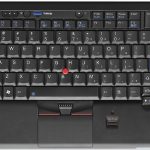Take Information Superiority over employee-owned devices to secure the mobile enterprise

The battle for your network revolves increasingly around Information Superiority. When your network is breached, the attackers leverage Information Superiority -- they know something you don’t about your environment and they’re using that to gain access to your network and digital assets.
Unfortunately the typical organization doesn’t know enough about its environment to effectively defend it. Perhaps nowhere is this lack of Information Superiority more apparent than in the mobile enterprise. A study conducted by IDC finds that 40 percent of IT decision makers say that workers access corporate information from employee-owned devices, but in stark contrast more than 80-percent of employees indicate they access corporate networks this way. To protect our corporate assets we need to close this gap.
Jelly Bean gives clues to Google Glass future
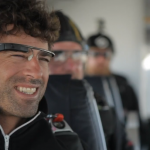
Two weeks ago during I/O, Google made many announcements, with Android 4.1, or Jelly Bean, among them. But there was more: Nexus 7 tablet, media-streaming sphere, new Google+ features, some updates to the Google Maps app, and Glass, Google’s idea for "smartglasses".
All these different products may make Google seem scatter-brained, but I think Project Glass accounts for many of the Android updates. Glass is clearly important to Google. Cofounder Sergey Brin says that he spends about 50 percent of his time on Project Glass. Google also went way out on a limb last April when releasing this concept video for a product, when at the time, they said they had no plans for bringing Glass to production, and they still have no clear plan today.
Piracy is killing Android
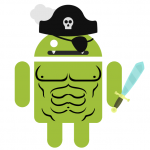
It sounds like a silly question. After all, Android is more popular than ever, with new “hero” phones and tablets arriving almost every week. However, for all of the platform’s success, there’s one aspect that remains a lingering blight on Google’s otherwise shiny success story: Software piracy.
Simply put, the rampant piracy of apps on “rooted” Android devices is killing developer momentum, with many devs resorting to unpopular and often intrusive in-app advertising and other gimmicks to make up for the gap in traditional Google Play revenue. And with the Android enthusiast community seemingly obsessed with “rooting” every new device that comes to market -- thus making it easier for unscrupulous users to pirate apps and/or bypass normal app security mechanisms -- the problem only gets worse.
You CAN recover stolen or lost gadgets, but it ain't easy

We carry expensive gadgets on us all the time now. On a flight we listen to music on an iPhone or read on a Kindle ebook reader. We watch movies on an iPad or play Angry birds on an Android. But what do you do if you misplace that device, or worse it is stolen? What recourse do you have to get it back, if any? Who do you call, or contact for help, and what can you do to be prepared beforehand to help in getting it back yourself?
In this article I will do a quick rundown of types of devices that are most commonly lost or stolen and go over some basic rules of the road beforehand with any new gadget or device you have.
Google Jelly Bean smokes Apple Siri
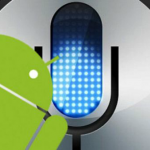
A week has passed since I started up my Google I/O-issue Galaxy Nexus and updated to Android 4.1 (aka Jelly Bean). Since then, my daughter and I faced off Google's Voice Assistant against Siri (on her iPhone 4S). The results aren't surprising. Google's depth as a search provider proves its wherewithal against Apple, which calls Siri a personal assistant. But Jelly Bean's feature, used alongside Google Now, is every bit more and every bit what a digital assistant should be. Siri sucks even more, by comparison.
I will be absolutely clear: Together, Voice Assistant and Google Now represent a watershed development, living up to what Apple promises with Siri. Google has successfully presented its depth of search in a truly meaningful manner -- one that can change how people interact with mobile devices. If execution improves over time, particularly as Google Now learns personal habits, these innovations could be as important to the search giant as the development of its algorithm.
Do you text and drive? Don't [infographic]
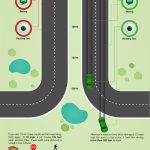
True story: While driving down Qualcomm Way into Mission Valley area of San Diego, a motorcycle cut across my lane. He moved from the right through the middle lane to the left. The guy was lucky that I saw him. I looked over while passing the motorcyclist, who was stopped in the left turn lane hunched over a cell phone. He had been texting! While driving a motorcycle! I've seen bicyclists do this, too.
The folks over at CarInsurance.org sent me an infographic with stats about texting and driving that should just chill your spine. For example: Most teens agree that texting and driving isn't good, but 30 percent do it anyway. Thirty-seven states ban the practice. Confess -- do you text and drive? I don't. But imagine if I had the day that the motorcycle crossed my lane -- both of us texting and driving and neither paying attention to the road.
PCs are still doomed and their end will come quicker than you think

A reader pointed out to me this past week that the personal computer is well over 30 years old -- a number that has real consequence if you are familiar with my work. He remembered I predicted in 1992 that PCs as we knew them would be dead by now.
I was obviously a little off in my timing. But only a little off. PCs are still doomed and their end will come quicker than you think.
Mozilla brings a knife to a gun fight, and Firefox OS can't win

Mozilla is the nonprofit organization that gave the world the first true rival to Microsoft Internet Explorer. Firefox is the second-most used web browser in the world today and because of it the way we surf the Internet has changed dramatically.
Their success was in part based on the lack of competitors. Firefox started gaining share when there was no one else around. Opera didn’t capitalize on this, but Firefox did. Their goal to penetrate the most difficult market has been achieved and it’s their desire to enter the mobile operating system world as well. Is this going to be tougher than the browser market? Considering that they haven’t yet released Firefox OS the answer is a very loud and clear: yes!
Micron swoops in to save Elpida, becomes top-tier supplier

Micron set itself up to be the world's top tablet and mobile memory supplier after announcing its intent to purchase Elpida on Monday. Apple is one of Elpida's biggest customers, and its chips are found in devices and Macs throughout its product line.
Micron will pay Elpida creditors $2.5 billion to settle any claims, and will pay Elpida $750 million to purchase its assets. Another $1.75 billion is to be paid through 2019 in installment payments for foundry services to be provided by Elpida to Micron, which will now operate as a Micron subsidiary.
If this were 2016, you'd be reading this story on a tablet
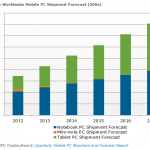
Tablets are the hottest computing devices right now, and thanks to the likes of Google Nexus 7 and Microsoft Surface, they’re only going to gain in popularity. In fact, the latest NPD DisplaySearch Quarterly Mobile PC Shipment and Forecast Report has them on target to surpass notebook shipments by 2016. Not too shabby for a platform that didn’t even really exist before the original iPad launched in April 2010.
The total number of mobile PC shipments for 2012 is estimated at 347 million units, with tablets accounting for around 121 million of those. Notebooks are forecast at 208 million units, with mini-note PCs (netbooks) making up the remaining 18 million shipments.
Does your PC have touchscreen display? You need Microsoft Touch Pack for Windows 7

Windows 8 may be the time when touchscreen technology finally comes of age in relation to laptops and desktops, but much of the groundwork is already present in the current version of Windows. Purchase a touchscreen display now and you’ll find Windows 7 is more than capable of letting you control it via your fingertips.
Microsoft didn’t do an awful lot to push touchscreens in Windows 7, however. One thing it has provided, though, is a collection of tools and games that showcases the touch interface. If you have a touchscreen display and you’re running Windows 7, you need the aptly titled Microsoft Touch Pack for Windows 7.
Four self-hosted Dropbox-like services businesses can use

File synchronization services like Dropbox have really taken off in recent time. They basically allow you to sync files between devices using cloud storage as buffer. Depending on the service, you get web access, document editing options, photo galleries, media streaming and more on top of that.
All services have in common that they encrypt the connection between your computer and the cloud host to protect the data from third parties that try to intercept or record what is being transferred. Each service has implemented its own scheme, and it is often difficult and sometimes even impossible to find out how the data is protected by the service.
Google Nexus 7: yet another cheap Android tablet (YACAT)
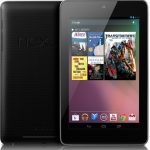
The cat is finally out of the bag. After weeks of speculation surrounding Google’s vaporous "7-inch Kindle killer", the Nexus 7 is now real. And as I suspected, the search giant’s new reference platform is nothing more than another in a long line of cheap, uninspiring Android tablets.
I mean, what is there to differentiate the Nexus 7 from similarly-sized tablets by Samsung or Acer? They all have the same crappy build quality, the same limited output options (no HDMI?) and the same tinny, poorly-placed speakers that have come to define the 7-inch Android tablet category.
I once was blind but now I see -- or, why I’ll never give up my PC for a tablet and smartphone
Microsoft's road to redemption

Microsoft just put behind it an eventful and positive week, coming off two major announcements on its two major computing platforms -- Windows and Windows Phone: Surface and WP8. Consumer and expert scepticism hobbled much of the excitement, as Microsoft nose dives into paradigm change. Nevertheless, the third week of June 2012 is indicative of a profoundly new direction for Microsoft, characterized by refreshing perspectives and paves a path that leads ultimately in the right direction.
Microsoft is making genuine inroads towards a new strategy that represents a complete paradigm shift from the fundamentals that defined the company and its products over the last couple of decades. The company used to be the antithesis of Apple in practically every sense, selling products based on the abundance of choice as opposed to Apple's strategy of marketing a small hardware lineup. Apple's strategy has always focused on ease of use, simplicity and form; whereas Microsoft, although not neglecting form and aesthetic, put functionality first and foremost and wrapped design around this in the most appealing way possible. The announcements this week represent a fully-committed digression from this strategy from Microsoft.
Recent Headlines
BetaNews, your source for breaking tech news, reviews, and in-depth reporting since 1998.
© 1998-2025 BetaNews, Inc. All Rights Reserved. About Us - Privacy Policy - Cookie Policy - Sitemap.
